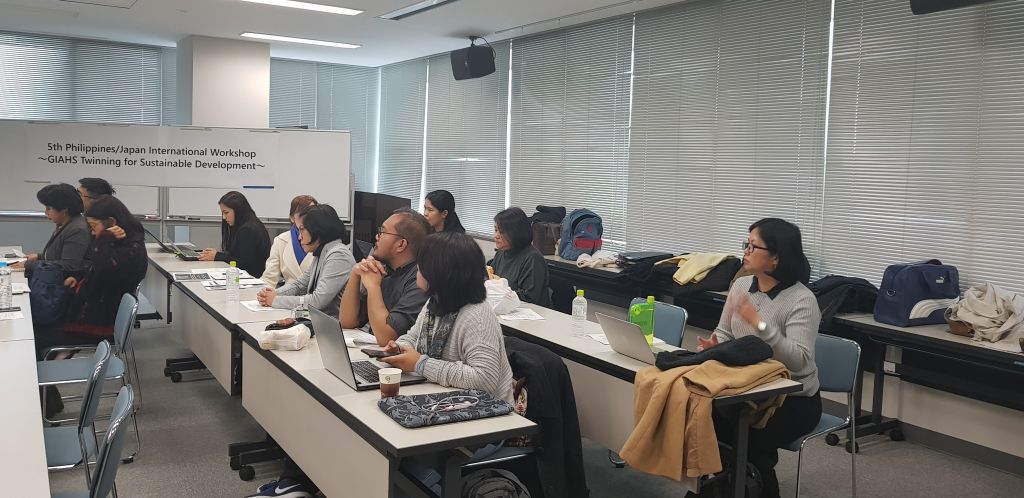
On 3-5 February 2019, faculty and staff of the University of the Philippines Open University (UPOU) attended the 5th Republic of the Philippines – Japan International Workshop – Globally Important Agricultural Heritage Systems (GIAHS) Twinning for Sustainable Development held at Ishikawa Prefecture, Japan.
The participants from UPOU were Dr. Joane V. Serrano, Information Office Director and Ifugao Satoyama Meister Training Program (ISMTP) Technical Working Committee Member; Dr. Consuelo dL. Habito, Environment and Natural Resources Management Program of Faculty of Management and Development Studies (FMDS-UPOU MENRM) Program Chair; Dr. Sherry B, Marasigan, faculty of Education – UPOU Affiliate Faculty; Asst. Prof. Aurora V. Lacaste, University Registrar; and Ms. Luisa A. Gelisan, Multimedia Center Director.
The presentations from the UPOU team focused on sustainable development in relation to projects that the university has been involved in since 2012. These include like the ISMTP, the Youth for Ifugao Rice Terraces (#Y4IRT,) and the UPOU-UP Rural High School Capstone Project.
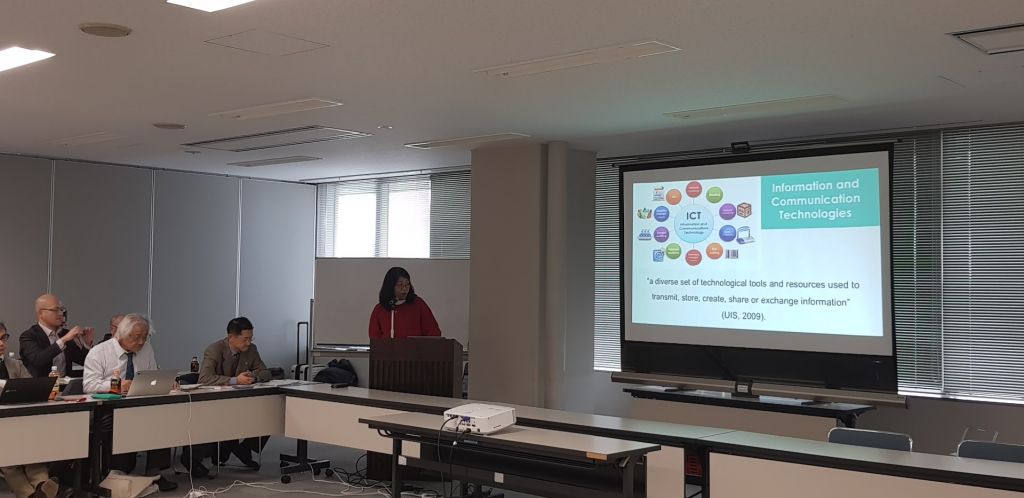
Dr. Habito, a member of the #Y4IRT project, discussed “The Use of Information and Communication Technologies (ICTs) and e-Learning of Ifugao Youths.. Her study aimed to identify the digital literacy level, social media usage and perception of the respondents on e-learning. Her study showed that , most of the respondents are generally knowledgeable in using basic/ common digital tools like computers and tablets, and are familiar with the use of search engines, browsers and photo editing programs. As for social media usage, respondents use Facebook, Google and Youtube respectively.
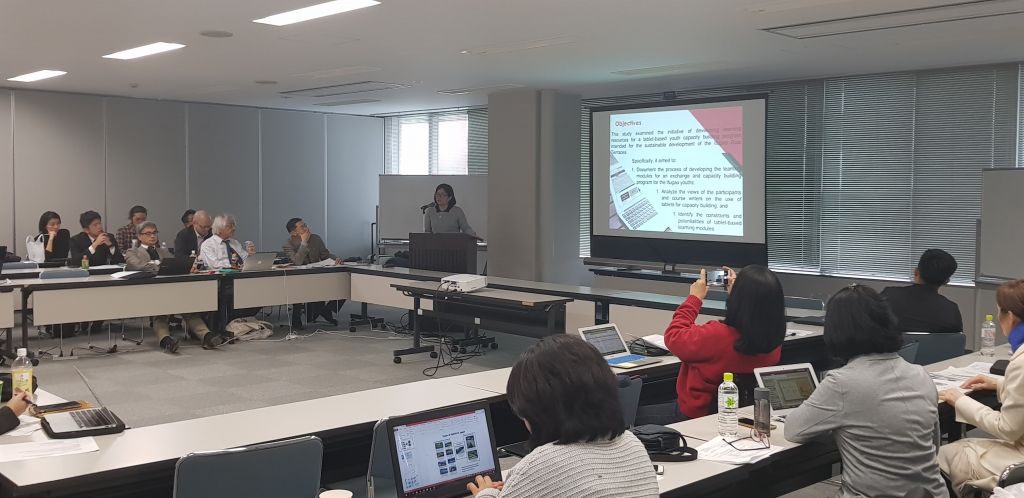
Dr. Serrano shared about “Developing Learning Resources for a Tablet-based Youth Capacity Building Program: Initiatives, Constraints, and Potentials.” She discussed the views of the developers and stakeholders of the learning resources. The course writers/developers stated that it fosters collaboration, innovation of ideas and validation of concepts. With regards to the use of tablets for capacity building, stakeholders pointed out that it can facilitate learning and can be easily disseminated, but constraints like other responsibilities and the possibility of being distracted by other applicatons should be noted.

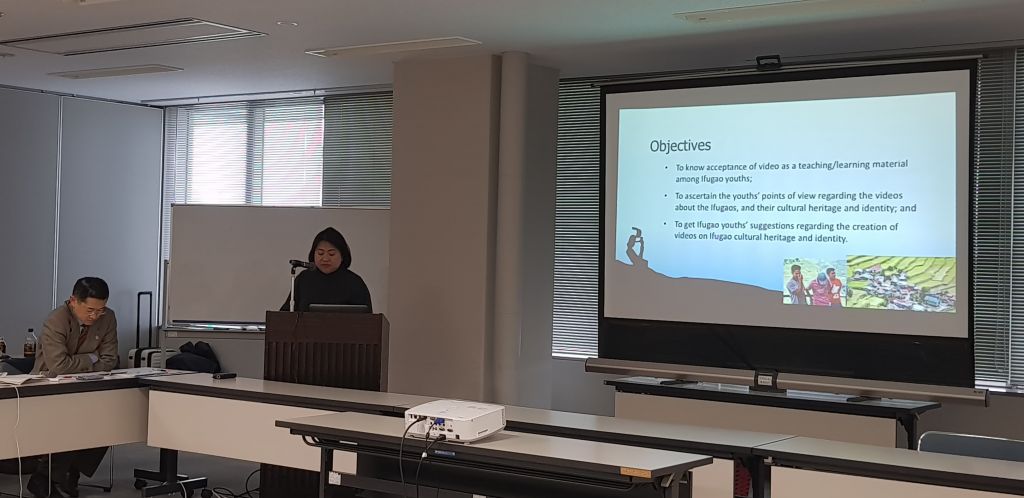
Director Gelisan presented “Ifugao Youth’s Views on the Use of Video Ethnography to Promote and Preserve their Cultural Heritage and Identity.” One point raised after the presentation was the effectivity of video in the transfer of information about cultural heritage and identity. Through videos, body languages and facial expressions are seen. This discussion became an avenue for the other stakeholders like Ifugao State University to consider the use of videos.
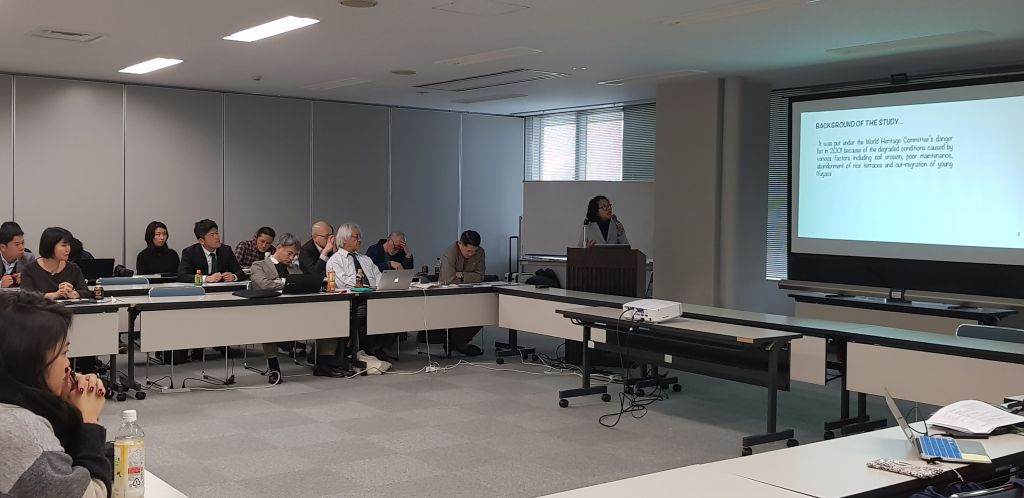
“A Glimpse of the Ifugao Rice Terraces Culture: Through the Eyes of the Urban Youth” by Dr. Marasigan is about documenting the experiences of urban youths in the #Y4IRT exchange program, making sense of the Ifugao Rice Terraces (IRT) culture and understanding their perceptions on conservation and preservation of IRT culture. The activity was seen by the urban youths as a good exercise to appreciate what they have in life after being in Ifugao and their insights provided an opportunity for the Ifugao youth to appreciate the Rice Terraces.
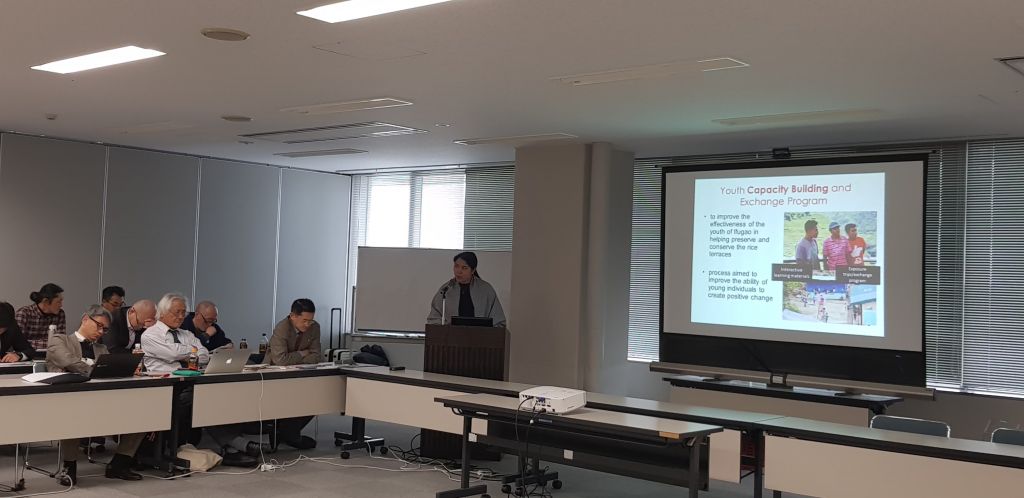
Lastly, “Challenges and Considerations in the Implementation of a Collaborative Project” was presented by Asst. Prof. Lacaste. This study is about the collaborative project between UP Open University and UP Rural High School called a Capstone Project.
Attendees of the workshop were faculty, staff, students, researchers and local government representatives from Kanazawa University (KU), UPOU, IFSU, United Nations University (UNU), UNU Operating Unit Ishikawa / Kanazawa (UNU-OUIK), Noto Prefecture and Suzu City. The workshop was organized by Kanazawa University and the Ifugao-GIAHS Support Committee (IGSC). (NDSAlazada)
